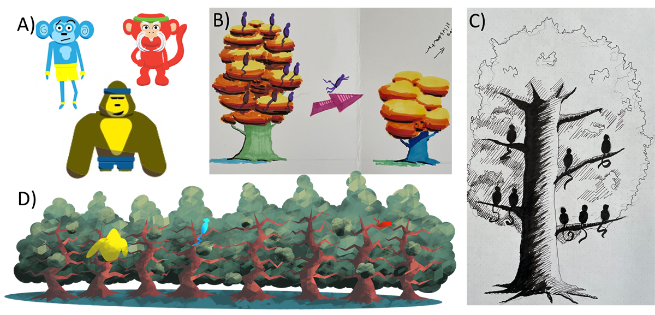
CEAT faculty member receives NSF CAREER award
Wednesday, March 23, 2022
Media Contact: Jeff Hopper | Marketing Media Specialist | 405-744-2745 | jeff.hopper@okstate.edu
Ömer Özgür Çapraz, an assistant professor in Oklahoma State University’s School of Chemical Engineering, has been awarded the National Science Foundation’s (NSF) Faculty Early Career Development (CAREER) Program award on his first attempt. It is the NSF’s most prestigious award for early-career faculty.
Çapraz’s project, entitled “CAREER: Identifying and Controlling Interfacial and Structural Instabilities in Transition Metal Oxide Cathodes for Na-ion Batteries” is slated to receive $500,000 in funding over the next five years.
“I am very excited to investigate failure modes in Na-ion battery cathode materials, which is crucial to designing novel electrodes with longer life,” Çapraz said. “The NSF CAREER project will make a substantial impact on our society by elucidating working mechanisms in Na-ion battery cathodes and developing educational tools for society. Also, having the acknowledgement by experts and leaders in battery community about our research is a very satisfying aspect and encouraging for our research endeavors.”
Integration of renewable energy sources within batteries is key to achieve carbon footprint goals by the middle of the 21st century.

Çapraz’s project will focus on learning more about the instabilities in sodium-ion battery materials and developing technologies that will aid in the commercialization of beyond lithium-ion battery technologies. Li-ion batteries are made of rare materials which are costly and unevenly distributed on the Earth's crust. The diversification of battery technologies could also have a dramatic, positive impact on the sustainability of battery technologies and our ability to produce critical battery applications during times of interrupted production capabilities, such as we are experiencing now.
The desirable features for new battery chemistries can be identified as being abundant, inexpensive, durable, and environmentally benign. Sodium-ion batteries are a promising candidate that can meet with these desirable features. In the CAREER project, Çapraz will investigate the governing mechanism behind the performance loss in earth-abundant Na-ion cathode materials such as sodium iron oxides and sodium manganese oxides (Shown in Figure 1).
“The development of new battery technologies is crucial,” Çapraz said. “These new technologies could reduce our dependency on lithium-ion batteries for power grid storage and lower energy output applications such as electric bikes. I believe that we will see new battery chemistries become more prevalent, because lithium-ion batteries, alone, won’t be able to meet the world’s needs.”

Aside from the research objectives that Çapraz has outlined in the project, there are also outreach and educational objectives that the researcher would like to achieve with the funding from the award. Achieving 2050 net-zero carbon goals also requires significant scientific achievement in Na-ion battery technology as well as public awareness of the batteries in general. Çapraz is passionate about developing educational tools for K-12 students and the general public about fundamentals of battery operation.
Çapraz believes that education on how batteries operate and their impact on society’s daily lives is paramount to the future of battery technology. As such, Çapraz has incorporated the development of educational materials for teachers, students and other members of the community into his project, including hands-on experiments at the Science Museum in Oklahoma City, outreach activities for classrooms around the state, and the development of graphical cartoons (Figure 2) that will target middle-school-aged children and help them learn more about current and new battery technologies.
“As a society, we need to better understand how batteries work,” Çapraz said. “I believe targeting the younger students will allow us to create a better understanding of batteries and terms surrounding battery technology at an early age, which will allow them to grow up with a better basic understanding of batteries and have the ability to build upon that knowledge.”
The CAREER Program allows faculty members, like Çapraz, to serve as academic role models in research and education, and should help build a foundation for a lifetime of leadership in the integration of education and research.
